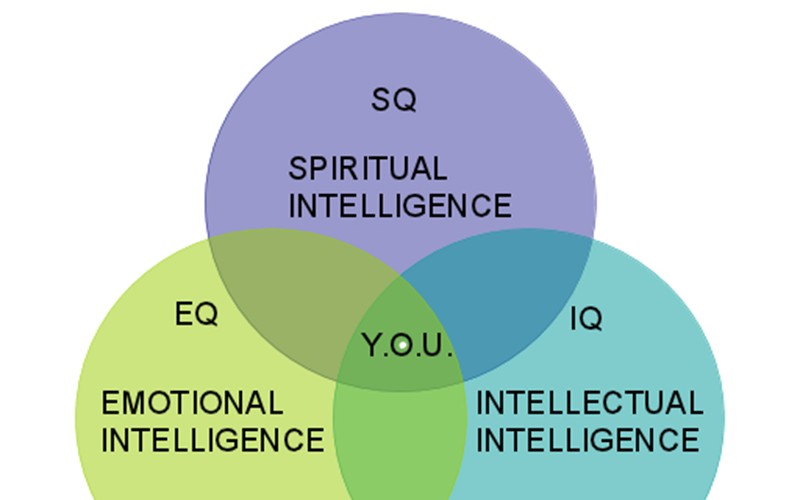Our Whitespace team recently discussed an article published by Entrepreneur Magazine and authored by the CEO of Trepoint, Bill Carmody, 5 Ways Entrepreneurs can use Emotional Intelligence for Marketing. The article offers good advice, encapsulated in five simple rules for success in digital marketing. The Whitespace experience during interactions with business executives would suggest, however, it is not so easy to develop and sustain Emotional Intelligence. (EQ)
We first examined what is commonly understood by the term, Emotional Intelligence. Mr. Carmody suggests that it, “boils down to common sense” and he also adds, the importance for “being real, authentic and intuitive” which, our team believes, is easier said than done. While most executives would agree that being genuine is an important goal to attaining success, how one develops emotional maturity and intelligence, is more complicated.
If Emotional Intelligence is defined as, “the ability to control one’s emotions and the emotions of others,” as Psychology Today states, then understanding one’s emotional response, is a pre-requisite to gaining that control. Many other definitions of emotional intelligence include the concepts of “empathy, self-awareness” and “expression.” Whitespace is ready to help you and your companies understand, what your clients really want, and how you are reacting and relating to them.
While Emotional Intelligence (EQ) and emotional self-control are key to successful business relationships, our Whitespace programs focus on the foundation of that control or Spiritual Intelligence(SQ); the essence of our individual identity. This Spiritual Intelligence is non-religious and identified as the ability to inspect and understand one’s essence and connectivity within our universe. It is a perspective which allows detachment and introspection at the same time. SQ is heightened self-awareness and allows one to be non-judgmental when interacting with both client and personal relationships. When one has the tranquility and confidence developed with Spiritual Intelligence, the ability to sustain Emotional Intelligence, has a higher degree of probability.
Mr. Carmody’s rules begin with “1. Listen Deeply” to which we would add the requirement, “to be present” which is more than just passively receiving client’s messages and desires but reacting and inter-acting to promote the trust and connection needed to develop emotional intelligence. The Whitespace methodology starts with communication flows and reactions, not just in a binary-client to business, but examining the emotional atmosphere of what clients are saying to other clients and what the business team is saying and understanding about their clients. This more complex flow of direct and indirect communication can change the “intelligence” which promotes the emotional maturity and self-awareness so key to relationship success.
The article continues with the suggestions, “2. Add value first.” and…”3. Attraction beats Distraction.” If the digital site is to add value before selling a product or service it is important to have the emotional intelligence to discern what is ‘valuable.’ While information and graphics can attract clients and Carmody suggests the law of attraction “draws your audience in,” Whitespace would add that client retention is every bit as important and is directly proportional to providing valuable information and returning a dividend to society. We are pleased to connect our network of clients and professionals and provide a forum for information, which will improve our lives and indeed, our Emotional Intelligence.
The 4th suggestion found in the Emotional Intelligence article requires explanation, since it is called, “4.Don’t Be Creepy.” Mr. Carmody suggests that the data mining of information, which has made most on-line clients wary of leaving digital fingerprints and profiles, can be a positive experience. If a service provider can anticipate their client’s needs, then the relationship is strengthened.
Unfortunately, business models, which sell email and client profile information to related vendors, are all too common and can indeed, make a client feel “creepy.”
Bill Carmody offers in his final Emotional Intelligence related suggestion, “5. Respect when Retargeting.” This important concept is key to finding repeat business without the unwanted harassment which lead to clients asking to be removed from marketing lists. Frequency and non-related products and services are two of the more annoying experiences listed by clients who disconnect from on-line service companies. While Mr. Carmody’s common sense would speak to the IQ or Intellectual Intelligence as much as the EQ Emotional Intelligence, Whitespace asks what about SQ the Spiritual Intelligence of the clients?
Whitespace offers the Dynamic Self-Assessment, which seeks to inventory and delineate one’s moods and emotional state. We believe that the combination of IQ, EQ and SQ must be understood and developed in order to comprehend the Y.O.U. or Your Own Universe. This Y.O.U. is the essence of the company and brand as well as the client each of us seeks to serve.







